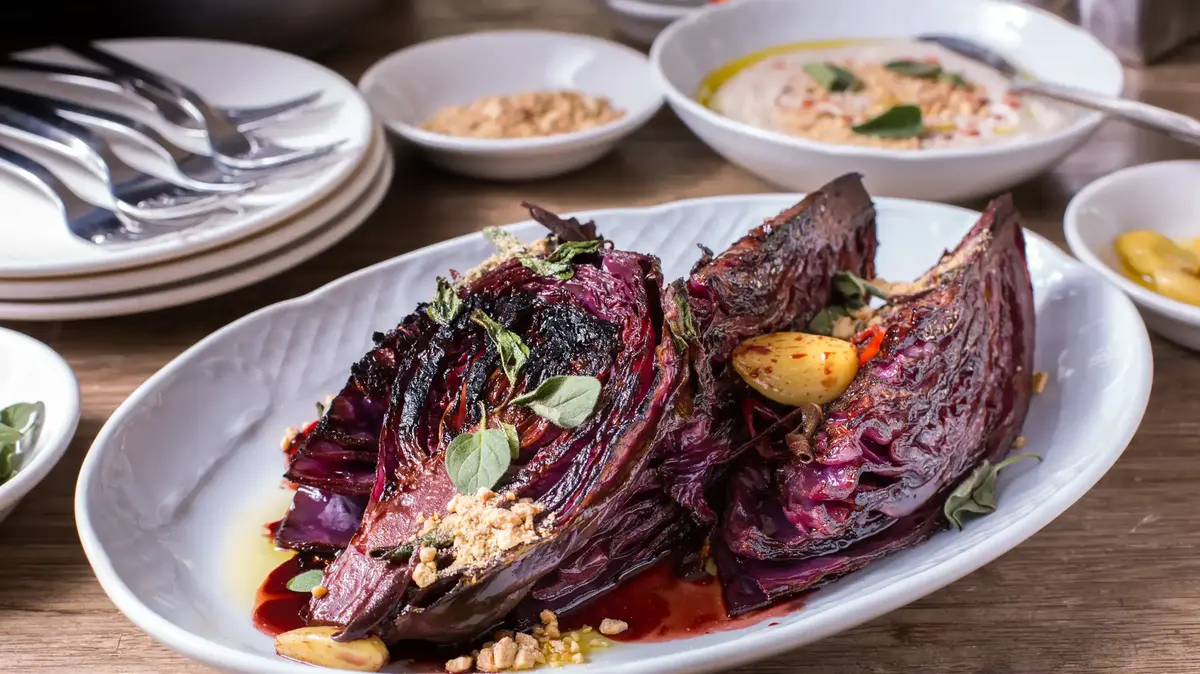5 Health Benefits of Purple Cabbage
True, its taste is similar to its greenish brother, but did you know that it contains more nutrients that help prevent disease and strengthen the body? Here are some important things to know about purple cabbage
5 Health Benefits of Purple Cabbage
Walla system! NewsVideo: Here's a great way to get your kids to eat more vegetables
Purple or red cabbage belongs to one of the most robust and healthy families in the vegetable world and is the crossover family that also includes broccoli, kale and cauliflower. True, it tastes similar to green cabbage, but the purple variety is richer in plant compounds linked to health benefits, such as stronger bones and a healthier heart.
The pigments that are responsible for the purple and blue colors in vegetables and fruits are called anthocyanins. These substances belong to the flavonoids family and are known to be one of the strongest antioxidants in nature. They protect against aging, contribute to blood and brain health and improve the appearance of the skin. They also contribute to vision and even help protect against cancer.
Here are some benefits of the purple cabbage:
More in Walla! NEWS More in Walla! NEWSWhat is healthier, cabbage or lettuce?
To the full articlePrevents heart disease
Anthocyanin intake can help protect against atherosclerosis leading to cardiovascular disease. In addition, these pigments act as antioxidants and thus prevent oxidation of "bad" cholesterol in the first place, while at the same time having an anti-inflammatory effect and maintaining vascular health.
A study by the US Department of Health found that anthocyanins were rapidly absorbed into the endothelial cells of the internal wall of blood vessels and prevented oxidative processes. The researchers concluded that this could have an important effect on vascular protection and prevention of coronary heart disease. In addition, anthocyanins have a relaxing effect on the blood vessels, which contributes to a reduction in high blood pressure.
More in Walla! NEWS
6 Vegetables You Should Eat Fresh And Uncooked Research: Eating Grape Cabbage May Help Against Alzheimer's Private Health Insurance Policies That Will Change Your LifeRich in vitamins and minerals
Although very low in calories, purple cabbage contains an impressive amount of nutrients. It is considered a good source of dietary fiber and vitamins A, C, K and B6. And it also contains small amounts of minerals such as magnesium, zinc, iron and calcium.
Helps strengthen bones
As mentioned, purple cabbage contains a number of nutrients beneficial to bone health, including vitamins C and K, as well as smaller amounts of calcium, manganese and zinc. The purple cabbage is also rich in vitamin K1, which is found mainly in plant foods, such as leafy greens and cruciferous vegetables. This differentiates it from vitamin K2 found in animal products and fermented foods.
There is evidence that both forms of vitamin K play a role in maintaining strong and healthy bones, although further research is needed to identify the specific effects of each.
Purple cabbage steak (Photo: Dror Einav)
Asado roasted cabbage (Photo: Dror Einav)
Good for diet
You probably know that cabbage is considered to be a negative calorific food that the energy (calories) needed to decompose in the body exceeds the amount of calories it contains. Well, that's not true, but it still doesn't mean that cabbage doesn't contribute to weight loss processes.
This is a versatile vegetable that can be eaten alive, steamed, pickled, cooked and even baked (try cabbage steak!) And all for a very small amount of calories (about 27 grams per gram). In addition, the dietary fiber in the cabbage will activate your digestive system, which in itself contributes to burning calories.
May protect against certain cancers
Experts believe that the content of sulphorphan and anthocyanins in cabbage - two compounds that have been studied for their anticancer properties - are the ones that give it the power to fight and inhibit certain cancers.
Sulfurapen studies, which give the cabbage its bitter taste, can prevent or inhibit certain types of cancer, including esophageal, melanoma, pancreatic and prostate cancers. In addition, researchers have found that the sulfurapene that can soon inhibit the enzyme histone dacetylase, which is usually involved in the development and progression of cancer cells. In addition, studies link consumption of cruciferous vegetables, including cabbage, to a lower 18 percent risk of colorectal cancer. Diets rich in cruciferous vegetables have also been linked to a lower risk of breast cancer.








